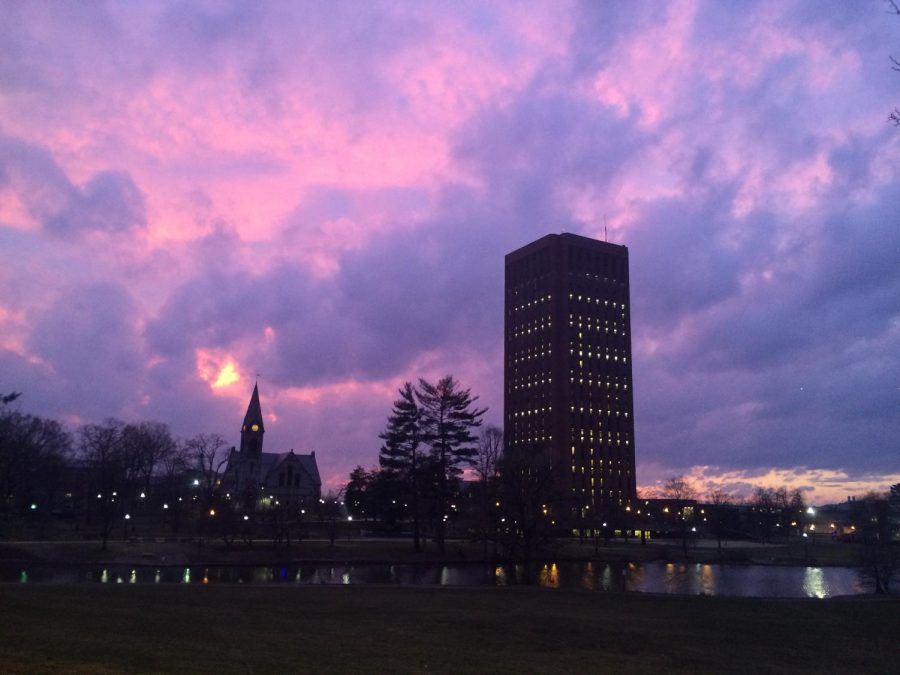The Center for Education, Policy & Advocacy organized a four-person forum last Thursday to discuss the rising cost of college tuition and increasingly burdensome student debt.
The event, “Making Your Debt Free Future Possible,” was part of ongoing efforts by CEPA to affect changes in public higher education through government advocacy.
Jacey Woods, a freshman communication major and event organizer, began the forum by emphasizing the expertise of the four speakers at the event and that they are exemplary in their dedication to fighting on behalf of financially disadvantaged students at the University of Massachusetts.
“Tonight, we all know that student debt is a complex, formidable and real problem,” Woods said.
The speakers at the event included Massachusetts Rep. Mindy Domb, Massachusetts Teachers Association Vice President Max Page and two students from the University who are involved in efforts to reduce the costs of tuition and fees at UMass.
“Public hearings on the State House are the place for the public to be engaged in policy reform and the legislative agenda,” said Rep. Domb as she opened the forum.
Domb spoke about her role as an advocate for public higher education as a representative in the Massachusetts State House. She was recently appointed to serve on the Joint Committee on Higher Education which advised students to engrain themselves within the political process.
Teja Pallikonda, a junior political science major, spoke on her work as a policy advocacy coordinator for Student Bridges, a UMass organization that seeks to provide emotional and academic support to underrepresented UMass students and students attending public elementary and high schools in the Pioneer Valley.
As part of their efforts, Student Bridges is hosting the “I’m So College” event, which brings minority and underrepresented students from public elementary schools in Holyoke, Springfield and Boston to UMass in order them to explore how the University can meet their financial needs.
Professor Page educated students on the history of public education and raised the question: why does free public education not extend to college?
“There is nothing in the 10 Commandments, that I’ve seen, that says public education ends at grade 12,” he said.
Page talked about his work in advocating for the CHERISH Act, a proposed bill that would deliver $500 million in funding to places of public higher education.
“The reason we are so underfunded for higher-ed, is that we treat it too much like a private good,” Page said, emphasizing that funding public colleges is a “reinvestment in the Commonwealth,” as it builds a society of well-educated and professionally prepared individuals.
Anthony Mulligan, a senior psychology major, spoke on the hardships he experienced before attending UMass. Mulligan bounced around from Florida to Georgia, experiencing bouts of homelessness. “My mother ended up losing her job, and we then lost our house… and then we lost our car… and then we were out on the street.”
Mulligan was able to secure enough Pell Grants and loans to pay for his college tuition, and he works several jobs to support himself. Despite his perseverance, Mulligan does not wish to be seen as a person who simply pulled himself up by his bootstraps.
“There is not a day in my life that goes by that I don’t think about how lucky I am,” Mulligan said, adding, “I benefited from an immense amount of privilege, and I think that’s really lost in my story sometimes.”
Jacey Woods returned to the podium to close the forum, and she urged students to retain their activist spirit. She said, “I think that as students, we have not only the right to a debt-free education, we also have to remember the power we have as students when we come together.”
Jacob Abrams can be reached at [email protected].



















